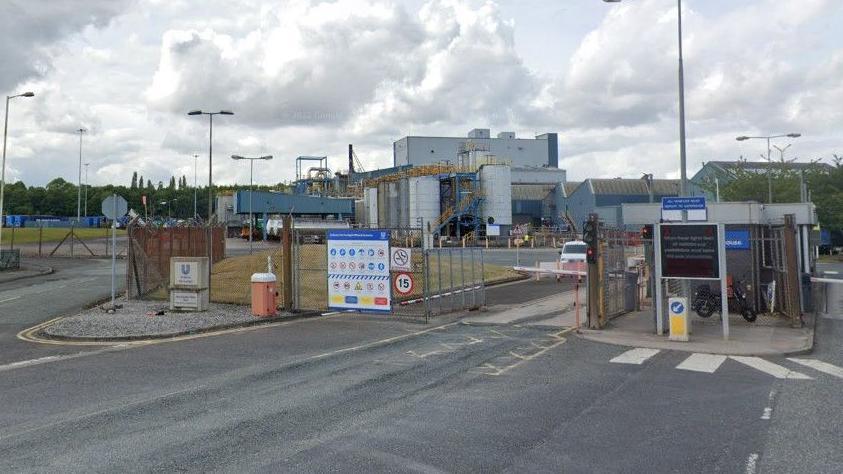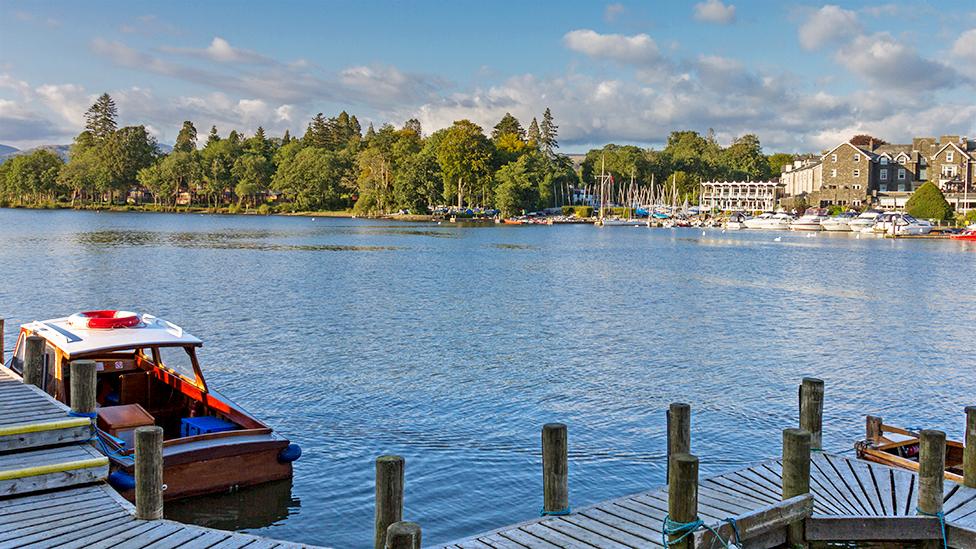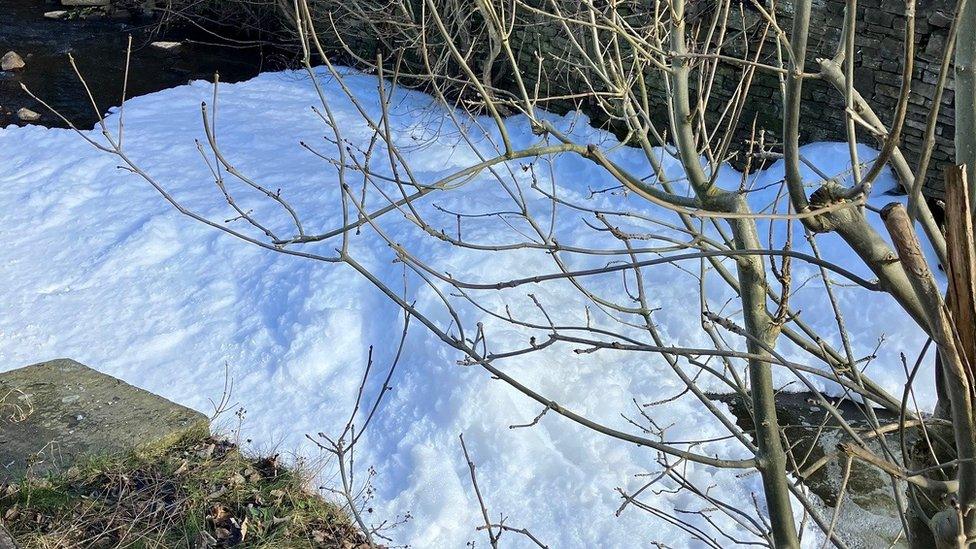Unilever apologies after soapy water pumped into brook

Unilever said the discharge created a low level of foam commonly found in its finished products
- Published
Consumer goods giant Unilever has apologised after soapy water was “incorrectly diverted” from its soap powder factory into an already-polluted river.
The multi-national firm said a foam discharge which should have directed into a water interceptor was pumped into Dibbinsdale Brook in Bromborough, Wirral, on 23 April.
It said it created a low level of foam commonly found in its finished products.
The discharge has been reported to the Environment Agency.
The firm told the Local Democracy Reporting Service (LDRS) works to help deliver a new project at the Unilever Soap Powder Factory in Port Sunlight had incorrectly diverted foam towards the brook "for a limited time".
The LDRS said pH tests had shown levels were within expected limits for the brook and the drain was later isolated and sealed to prevent any discharge happening again.
'Took immediate action'
A Unilever representative said minimising the impact of its operations was "a priority... and we took immediate action to stop this from continuing".
They said the firm had also begun "a thorough investigation to determine the cause and ensure that it does not happen again".
"We are sorry for any concern this may have caused local residents," they added.
The LDRS said government data collected in 2022 showed pH levels in the brook were already high.
The data showed the waterway, which discharges into the Mersey, has a poor ecological status with low levels of fish and invertebrates.
It showed levels of phosphatase, which can come from fertiliser or sewage, were poor, as were dissolved oxygen levels, which helps marine life to breathe.
It also showed temperatures were high, as well as levels of triclosan, an antimicrobial agent that is included in soaps, hand sanitisers, toothpaste, mouthwash and other such items.
A survey done in 2019 also found the river failed when it comes to levels of toxic mercury.
Listen to the best of BBC Radio Merseyside on Sounds and follow BBC Merseyside on Facebook, external, X, external, and Instagram, external? You can also send story ideas to northwest.newsonline@bbc.co.uk, external
Related internet links
Related stories
- Published4 December 2023

- Published26 February 2023

- Published15 April 2024
